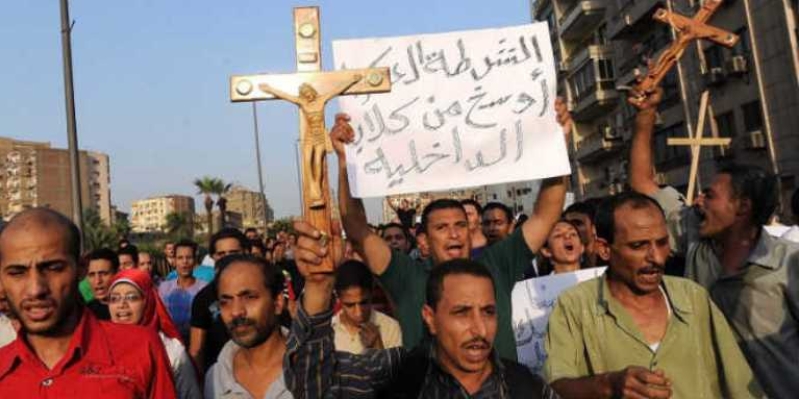
No one is more afraid of the consequences of President Donald Trump's executive order banning travelers from seven Muslim-majority states than Christians within those designated countries, according to a Wall Street Journal report.
Trump told the Christian Broadcasting Network last week he was trying to help Middle East Christians: "They've been treated horribly, we are going to help them."
But the estimated 13 million Christians still in those seven targeted countries probably will pay for Trump's so-called "congeniality," reports Breaking Israel News. "Nobody is seeing this as motivated only by security, and everybody views this as targeting largely Muslim immigration," Basem Shabb, the only Protestant member of Lebanon's parliament, told the WSJ.
"Trump's offer of help is like a poisoned chalice. It has come at the expense of alienating the region's Christians from their Muslim neighbors."
Most of the violence in the Middle East is between Sunni and Shiite Muslims who both follow the same religion (Sunnis are a minority in Iraq and a majority in Syria), reports Ishtar Broadcasting Corporation.
The WSJ quotes Yonadam Kanna, a Christian MP who leads the minorities bloc in the Iraqi parliament, who said there is no doubt Trump's executive order will backfire on Iraqi Christians.
"This will lead to new discrimination. It will reflect very negatively on minorities," Kanna said.
He also stressed that while Middle East Christians "appreciate the feeling of support for vulnerable communities," what they would like President Trump to do "is to help us to stay."
According to Aletia, the head of Iraq's largest Christian denomination, the Chaldean Catholic Church, Patriarch Louis Raphael I, commented on the Trump executive order, indicating that any preferential treatment likely will encourage "propaganda and prejudice that attack native Christian communities of the Middle East as 'foreign bodies,'" or worse, as being "supported and defended by Western powers."
"These discriminating choices," Raphael I said, "create and feed tensions with our Muslim fellow citizens. Those who seek help do not need to be divided according to religious labels. And we do not want privileges."
The position of Christians in the Middle East varies dramatically. In Lebanon, where the president and the armed forces commander are both Christians, they account for a large part of the population and enjoy relative safety. In Egypt, the region's biggest Christian community has been targeted by a series of terrorist attacks but remains a barricade of support for President Abdel Fattah Al Sisi. Neither country is covered by the executive order.
Among the seven countries included in Trump's ban, Syria and Iraq both have large Christian communities. Christians there have been persecuted and ousted from their homes by Islamic State and other Sunni extremist groups. But they were usually afforded slightly better treatment than Shiite Muslims, who faced a choice between conversion or death.
Across the Middle East, a significant part of Muslim public opinion has long viewed Christian citizens with suspicion because of their historic links with the West. Trump's executive order is likely to inflame these feelings, warned Michael Wahid Hanna, a specialist on the region at the Century Foundation think tank in New York.
"It paints the Christians and other minorities as almost a ward of the West, a community that doesn't necessarily have a future in the Arab world," he said.
These perceived connections are some of the reasons why the region's Christian leaders have denounced Trump's move.
"Christians are part of the Middle East and they don't accept being treated separately from their co-citizens the Muslims," said Father Rifaat Bader, head of the Catholic Center for Studies and Media in Jordan.







